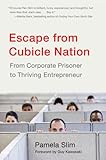Myers Briggs and the type of writer and hubber you are!
What kind of writer are you?

Everybody is different and writes differently!
If you are familiar with the Myers Briggs type indicator, you would recall that everyone is different and there are 16 major personality types. There's a lot written about Myers Briggs, but 16 personality types are A LOT to learn about!
This is why there's a simpler set of archetypes, also based on the Myers Briggs personality assessment. These archetypes have been traced back throughout literature to over 2000 years ago! They are:
- The Guardian Temperament (xSxJ Sensing - Judging Myers Briggs) These people are concerned with the upholding of social order and community. About 35% of the US Population are Guardians.
- The Artisan Temperament (xSxP Sensing-Perceiving Myers Briggs) These people like practical application of skills and enjoy practicing them. About 35% of US population are Artisans.
- The Rational Temperament (xNTx Intuitive Thinking Myers Briggs) These people are concerned with systems and rational understanding of the world through science and models that can be verified. About 15% of US population are Rationals.
- The Idealist Temperament (xNFx Intuitive Feeling Myers Briggs) These people are concerned with the well being of others and the social harmony. They often feel strongly about some causes, which can range from environmentalism to marriage to self awareness.
By focusing on this and learning your personality type, you would be able to tailor your message to a more specific audience! Especially if you are writing with the motivation of getting money and traffic from your hubs!
What is your type?
- Personality test based on Jung - Myers-Briggs typology
A Free online test based on Jung - Myers-Briggs personality approach provides your type formula, type description, and career choices
How Guardians Write
Guardians are interested in the preservation of social order and institutions. This is done primarily through organizing things in an orderly fashion. In plain English, guardians love Standard Operating Procedures, chain of command and checklists. About 35% of US population are guardians, a lot of whom can be found in business and corporations.
A lot of guardians are interested in business, and a lot of the great business books in the past have been written by a guardian. Your stereotypical manager would be a guardian and can tell you a lot about how to run a system in an orderly fashion.
The guardian writing is very down to earth and they would use real world examples and case studies and avoid fancy language. To explain fact and trends, guardians would use a lot of numbers, including percentages.
Guardian writing tends to be logical with a clearly defined structure in mind.
I'm thinking of the "E-Myth revisited" by Michael E. Gerber as an example of the guardian writing. An important thing about this book is that even an audio book was narrated by the author, emphasizing the strong desire of Guardians to do things right.
When writing for Guardians:
- Emphasize credibility indicators - years of experience, Ph.Ds, titles to get them to listen to your message
- Add a checklist of things to do and show how your system works
- Use plain language and support your information with facts, figures and charts
How Rationals write
I'm a member of the Rationals and can attest that we tend to write in rather general terms. Precise numbers are less important and can be added later. Rationals are prone to generalizations and will resolve to analogies before using numbers when proving a point. Rationals can be found in academic institutions and sciences. About 15% of US Population are rationals.
Rationals tend to be very good at understanding systems, but may express their knowledge of the system either too concisely (avoiding stating the obvious points) or too detailed (boring the audience to tears). Rationals write primarily to educate and improve the understanding of others, but also tremendously benefit themselves by putting their thoughts on paper.
Rational writers can be spotted by their in-depth understanding of a system and the use of abstract language. I'm thinking of the "7 habits of highly effective people" by Stephen R. Covey as I write about rationals. Thinking and systems are the central theme of such books and the exercises offered are often exercises in thinking.
When writing for rationals:
- Demonstrate that you know what you are talking about - competence
- Credibility indicators, like Ph.D or a title generally don't impress rationals
- Outline the idea and then delve into the details
How Artisans write
Artisans enjoy skills are prone to practice them a lot more than the rest of the population. The skills can be anything from cooking to surfing to art and music. Artisans make up about 35% of US population and can be found everywhere they wish to be.
Books written by Artisans tend to be focused on one subject and have a lot of real life hands on experience and examples as done by the author. Such books are usually written after years of experience!
Artisans are usually aware that they are better than the rest of the world at something, and tend to write "How to" books and give you hands on exercises to follow. The purpose of their writing is to educate the rest of the world on how to learn a particular skill. They would advocate starting to learn right now or in the very near future.
As I write this, I'm thinking of the "Mystery Method" (by Mystery with Chris Odom) pick up artist book as a prime example of an artisan written book.
When writing for Artisans:
- Demonstrate how what you are writing about can be applied now
- You must write about something immidiate and important
- Include specific hands on exercises to help with practicing the skill
How Idealists write
Idealists are very interested in interpersonal relationships, well being, mentorship, helping others or causes like environmentalism, sustainable living or ending world hunger. These causes define who an idealist is and this is reflected in their writing. Idealists are found in the personnel development, teaching and social services. About 15% of US population are Idealists
Idealists tend to write in vague abstract terms, like rationals and would use broad terms like "love", "compassion'' and "well being", which mean to them a lot more than the standard dictionary definition.
Unlike the rather dry style of rationals, the Idealist's writing is filled with emotion and emotional imagery. Rationals write striving for the better future
Another defining point about idealist writing is the purpose - it is to make things better!
The "Escape from a cubicle nation" sounds like an idealist kind of writing
When writing for idealists:
- Emphasize how your writing would help the Idealist's loved ones
- Avoid insignificant details and write more broadly
- Add emotion to your writing
How does this benefit me?
Understanding the kind of writer you are will help you maximize your strengths when writing for "your kind of people" and avoiding mistakes when writing for others.
When reading articles, books or so on, it is interesting to notice the type of book's writer and "translate" the book to your internal language as you read it.











